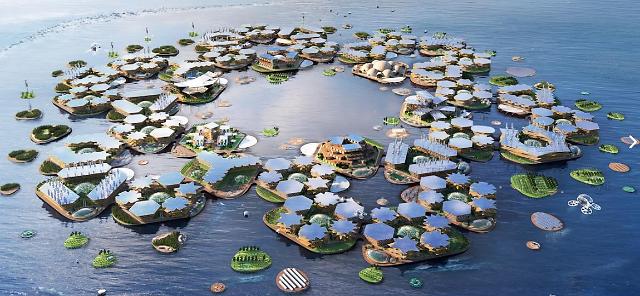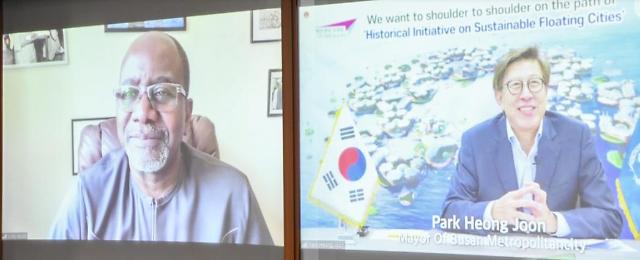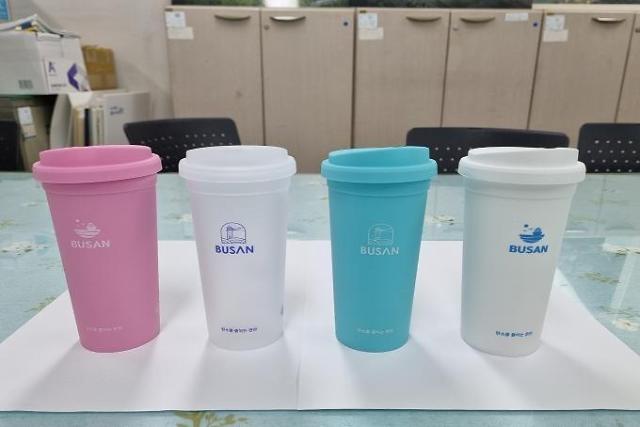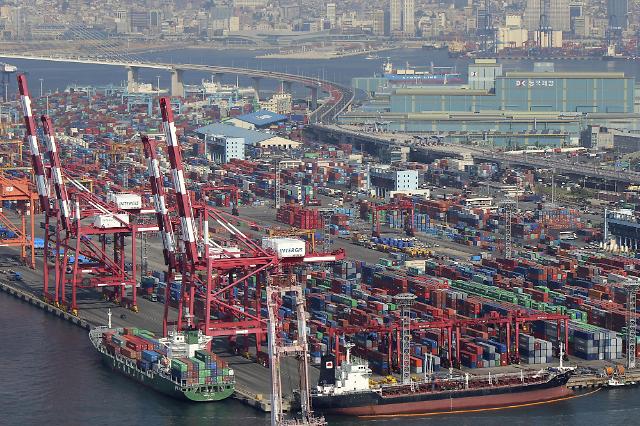
[Courtesy of Oceanix]
SEOUL -- Oceanix, a bluetech company based in the United States, will conduct a feasibility study to see if the port city of Busan, a main maritime gateway in South Korea, is suitable for a United Nations project to build a pilot model for sustainable floating cities which have been presented as a solution to ensure climate resilience.
As the world’s coastal cities are increasingly threatened by rising populations and sea levels, the UN is exploring a new approach to building offshore hubs of habitation. Oceanix leads the construction of sustainable floating cities being pushed by UN-Habitat, which has selected Busan as a partner city. Based on the results of a feasibility study, a consultative body of foreign and Korean experts will be formed to continue discussions on how to build a pilot model.
Modules will be fixed to the seabed with biorocks, which are a cement-like engineering material formed when a small electric current is passed between underwater metal electrodes placed in seawater causing dissolved minerals to accrete onto the cathode to form a thick layer of limestone. The process can be used to create artificial electrified reefs for the benefit of corals and other sea life.
Busan described sustainable floating cities as a modern version of Noah's ark that meets energy and food demands without destroying the marine ecosystem. "I am proud to be with UN‐Habitat to build the world's first maritime floating city in Busan," Busan Mayor Park Heong-joon said after signing a memorandum of understanding with UN‐Habitat executive director Maimunah Mohd Sharif and Oceanix CEO Marc Collins Chen in a video conference on November 18.
"The construction of a pilot model will play a pivotal role in strengthening Busan's status as a global first mover," Park said in a statement posted on the city's website. He said the project would bring about various positive effects such as preemptive response to the climate crisis, economic stimulus in South Korea's shipbuilding and plant industries, technology development related to floating cities, and the maintenance of legal systems.
With major industrial complexes and shipyards located within an hour's drive, the port city is undergoing a structural change to become a smart port using artificial intelligence, big data, Internet of Things (IoT) and blockchain.




